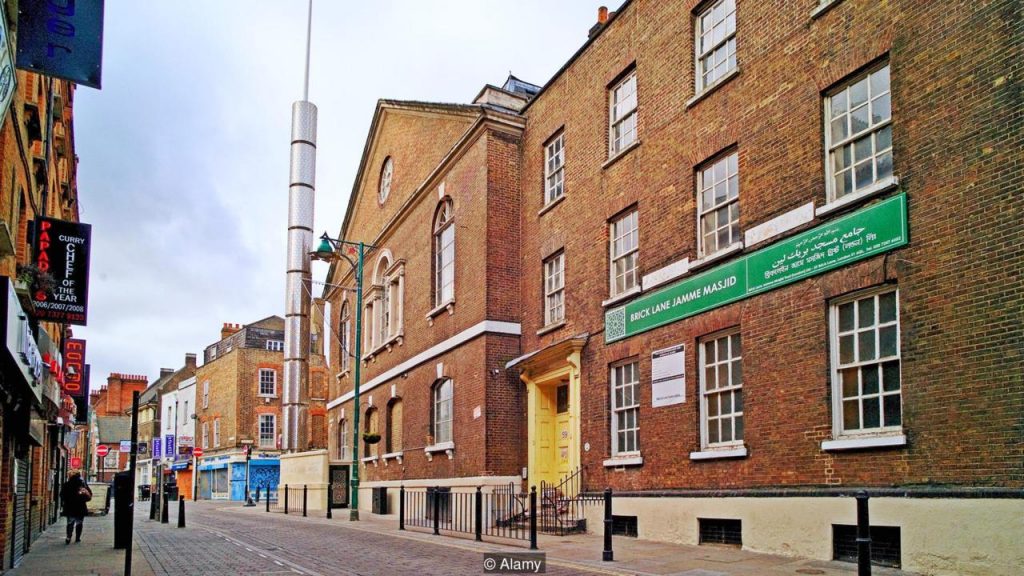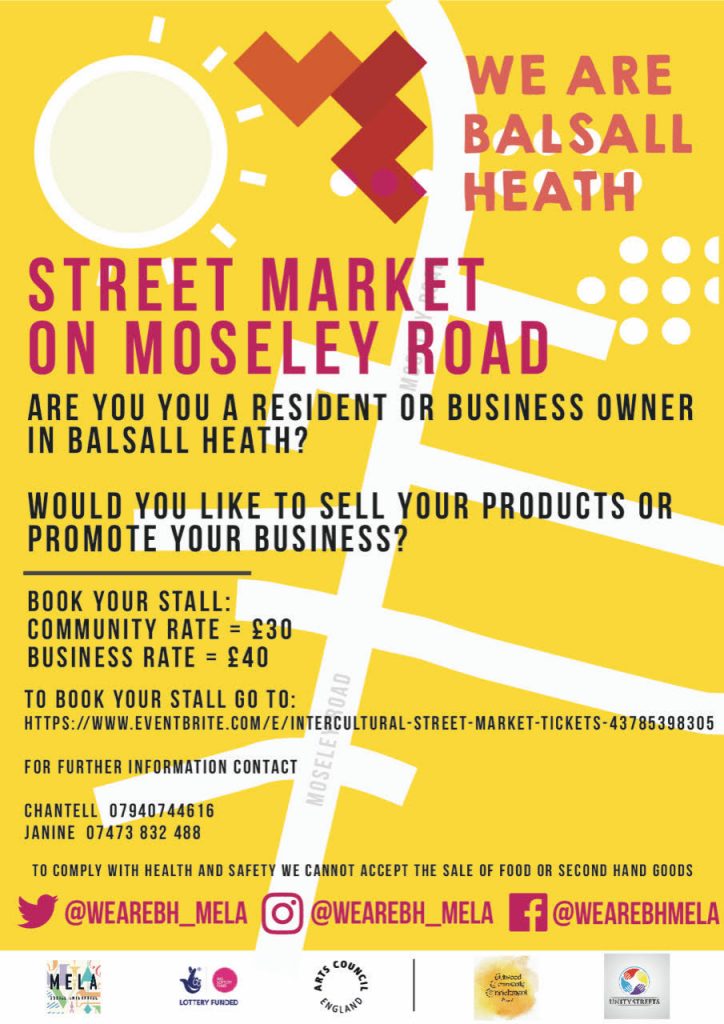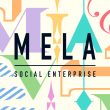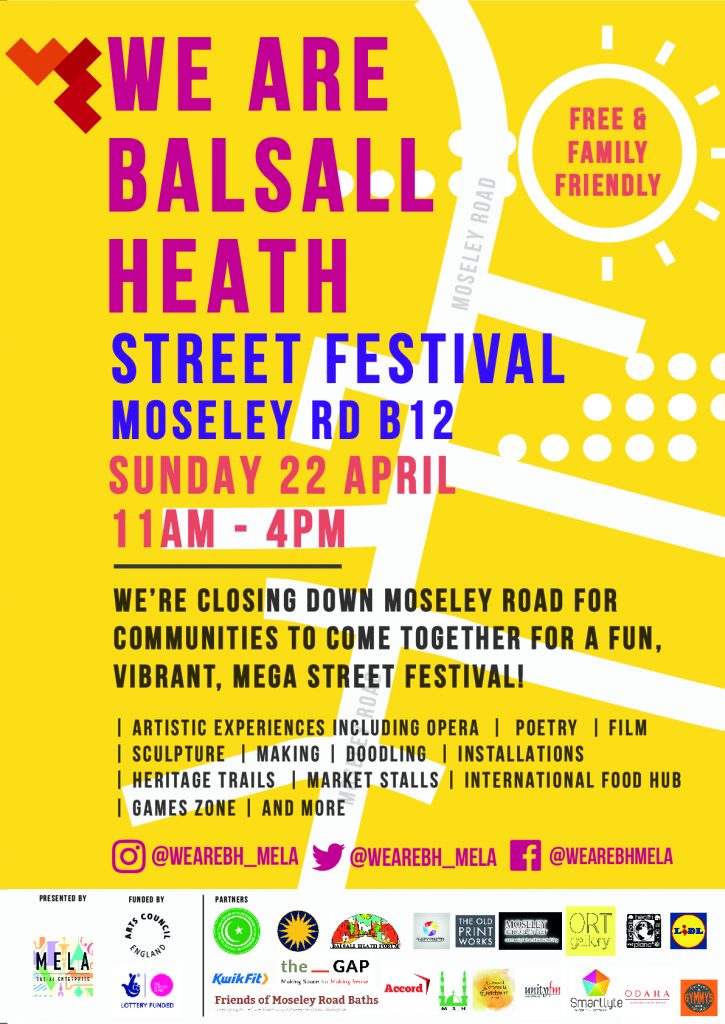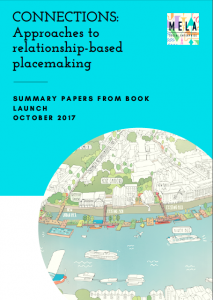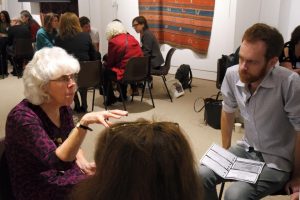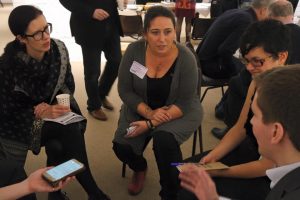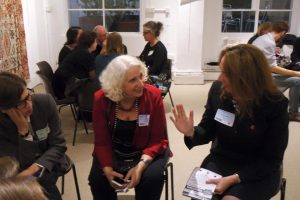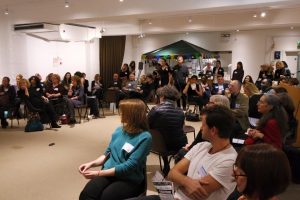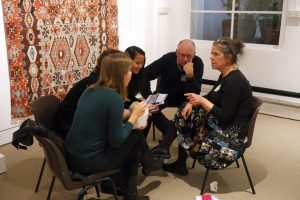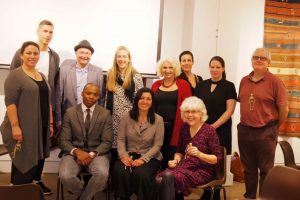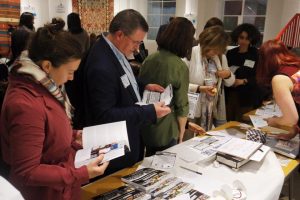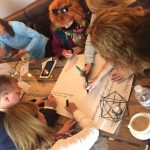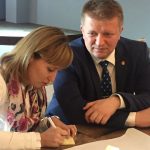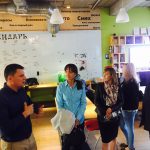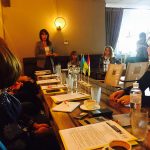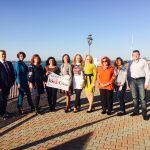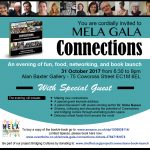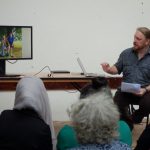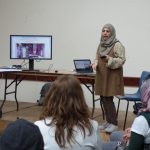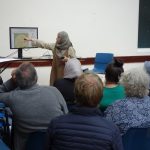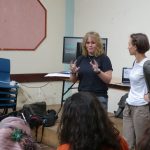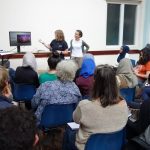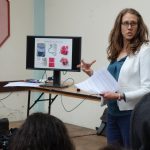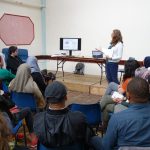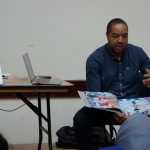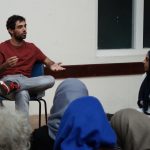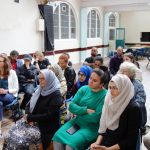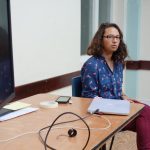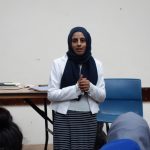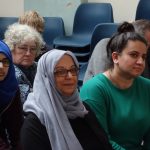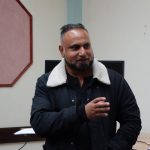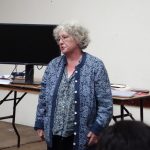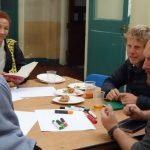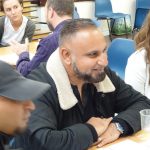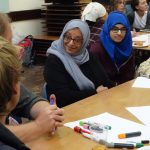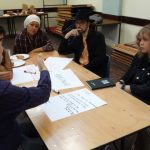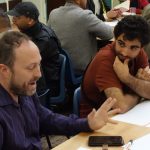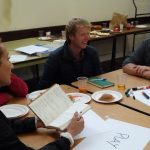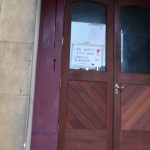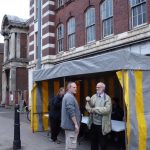This article is the talk Noha Nasser gave at the Historic England Conference entitled The Heritage of Minority Faith Buildings in the 20th Century on 12th March 2018.
A Japanese friend of mine works for Channel Four. Set up to represent ‘alternative voices’, Channel Four has an ethos that filters down from the Senior Management to the lowest paid staff. Asked how her workplace makes her feel, my friend said: ‘I feel fulfilled. I am totally accepted, nobody judges me. I feel fully part of the team and that my work is valued. I don’t mind staying late at work because I feel motivated.’ Clearly a diversity ethos has many benefits to the employee. But reverse the question: how does a happier more productive employee benefit the organisation? It seems that feeling accepted, fitting in, or simply valued for your work, not the colour of your skin, sexual orientation, faith or physical ability is a win-win for any organisation because productivity and inspiration shoot up. With an ethos focused on promoting the alternative voices of the country (and arguably the world), Channel Four is also addressing what the diverse audiences of the 21st Century are wanting to hear. Viewers feel understood, valued, and respected. They are important too. Without the viewer, Channel Four wouldn’t exist. There is a symbiotic relationship between the broadcaster and the viewer.
Turning our attention to the heritage sector – the broadcaster of all matters related to the historic environment – what message are we broadcasting to our viewers? Who are our viewers? Predictions tell us that by 2050, 20-30% of the population will be from non-white backgrounds. While the white population remains more or less stable, those of different cultural origins are contributing to the greatest growth. There is no denying the face of England is radically changing. A cursory glance at the message broadcast by the heritage sector so far, tells us we have reached largely one segment of society. Why?
The answer is simple.
We have only told one story. Our story was born out of the need to create a nation state with one unifying identity. In the process of creating that identity there was no room for diversity. To unify, we had to absorb, co-opt, or eradicate multiple identities. We had to distinguish between who belongs in the story and who doesn’t.
The problem with the story is that it doesn’t reflect reality. England has had a complex history. Conquered and settled by many different tribes, peoples, empires, and nations, England’s heritage is a complex palimpsest of human cultural interventions. Throughout that history we are told who fit in and who didn’t – and in some cases we don’t even hear about some cultural interventions because it doesn’t quite suit the story.
In short, our story has been edited.
Only recently has this begun to change. Historic England has taken bold initiatives to broaden its heritage interest. A new category of ‘under-represented heritages’ has emerged to take account of the diversity and complexity of societal groups are less well represented in the ‘mainstream’ thinking about heritage and key heritage management tools such as the statutory lists.
Supported by key policy documents like Power of Place: the Future of the Historic Environment, and Conservation Principles the emphasis has been on everybody’s heritage needs to be recognised, and everyone should have the opportunity to contribute his or her knowledge of the value of places.’
More recently, the guidance note on Contested Heritage is advising on how to handle the changing nature of our understanding and interpretation of history -sometimes to the extent of being painful, shameful and challenging. Quite wisely, the response to contested sites is to provide alternative and counter-narratives, rather than removal or demolition. We can’t be afraid of the many opinions and voices that define heritage.
At the same time, more crowd-funded stories are being encouraged from local people. The Pride of Place project, Enriching the List, and Another England seek to hear from local people what is meaningful heritage for them.
These are all commendable moves, however, in my mind, there still remains a distance between those that belong and those that don’t. Between the broadcaster and the viewer.
Unlike the arts sector, who have made great strides in diversifying themselves as organisations, as curators of culture, and in their audience development, the heritage sector still remains compartmentalised in its representation of Englishness.
Take a look, for example, at the naming of ‘under-represented heritages.’ Why is it a sub-category? We are clearly distinguishing between those heritages that are represented and those that are under-represented. They are separate heritages.
This may be the narration of historical omissions but the focus on the omission only serves to maintain this separateness. Similarly, the labelling of ‘Minority faiths’ holds similar connotations distinguishing between majority and minority.
Why do we need to maintain these hierarchies? This form of language is a telling sign that the main story still remains, but now we have a few sub-stories, but they are not as important, or of equal value, as the main story. The sub-story is still not woven into the fabric of the main story. It remains tokenistic and marginal.
We have to ask ourselves: what are we valuing? Who are we representing? Whose heritage are we validating? Who belongs in the main story?
So what can we change so our heritage sector is ready for 21st Century England? I have two suggestions that would bring the heritage sector up to par with the arts sector.
The most obvious change is the story.
We need to broadcast the alternative voices; the diverse and complex stories that together make up our history. We want our viewers to identify with the diverse stories that represent them. There may be multiple stories on the same topic. This should be encouraged.
The second change is what staffing exists in heritage sector organisations? Do staff represent today’s society? Are they trained to research the many stories? Do they themselves identify with the many stories? Does the ethos of ‘diverse stories’ filter down through Senior Management and the Commissioners, down to the lowest paid staff?
Do they represent Britain today? 51% women; 1.5% gay; 20% are disabled and 20% non-white?
For 3 years, I sat on the Historic England Advisory Committee, and I very much felt a minority both in terms of gender and more so by ethnicity. In those 3 years, only twice did the agenda address the issue of under-represented heritages and community-led projects. It was clear that the focus was on mainstream heritage which understandably currently forms the majority of listings. But can this change? Historic England’s Diverse Workforce Strategy is an important and welcome step in starting the change.
Looking to the future, if a new ethos of ‘diverse stories’, multiple interpretations, recognition of the complexity of English identities was integrated across the whole organisation, the symbiotic relationship between broadcaster and viewer would ensure Historic England’s existence and success in the 21st Century.
We need our viewers.
